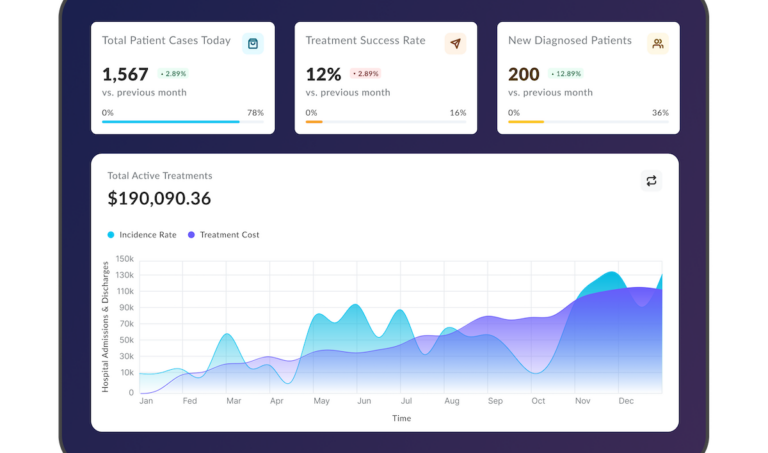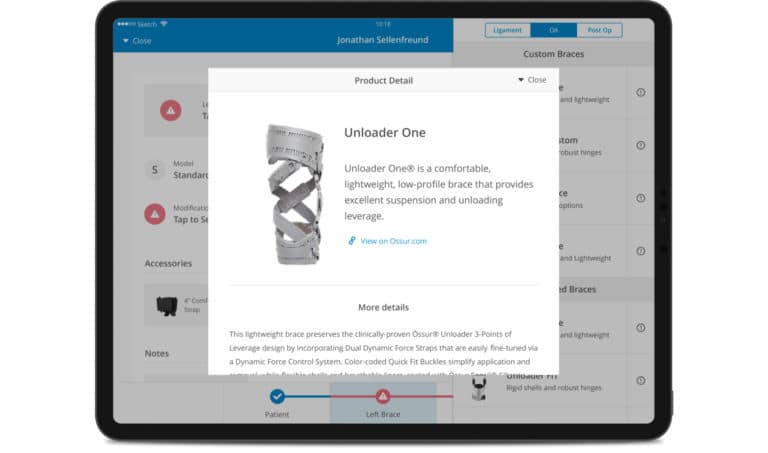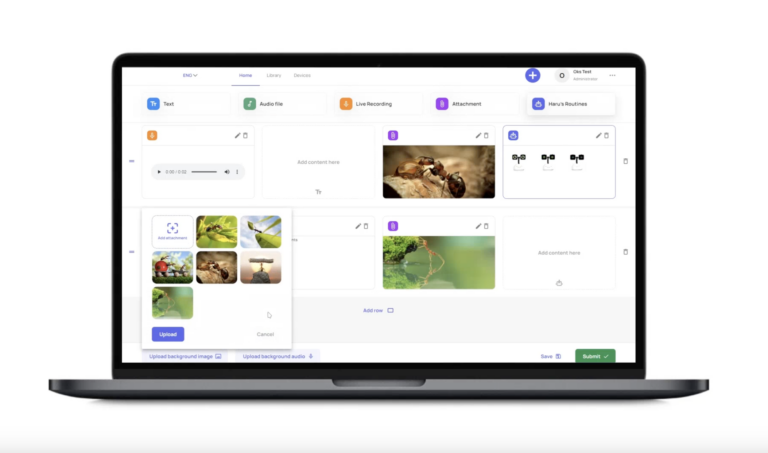Digitizing Construction Industry with Mobile App Development
Updated: November 3, 2021
Digitalization is not a futuristic idea, or something dim and distant. It is happening right here and right now, and there is no alternative to it. Sooner or later, it will happen to every industry, every company, and every employee.
What does this today’s widely-spread word really mean?

We provide companies with senior tech talent and product development expertise to build world-class software. Let's talk about how we can help you.
Contact usDigitalization itself, or digital transformation, is moving away from manual work and paper-based processes towards real-time sharing of information and automated processes.
Digitalization is deeply grounded in emerging technology innovations. Its right-hand men are digital solutions and mobile devices.
Numerous industries, including healthcare, transportation, aviation, retail, fintech, are leveraging digitalization and enjoying practical and relevant benefits it brings.
With the help of software systems and mobile apps, companies achieve complete transparency of their processes, enhanced communication and collaboration, precise quality control and risk assessment, and, what is the most important, better outcomes.
Table of Contents
Old habits die hard
Construction industry is ripe to take off on a digital journey. According to the recent report by Roland Berger “Digitalization of the Construction Industry”, less than 6% of construction companies make full use of digital planning tools, while 93% of industry players agree that digitization will affect every process.
Construction companies not evolving together with technology are vulnerable to be left behind. However, due to continuing challenges the industry adopts technology and process innovations incredibly slowly.
Construction industry is a very specific one. Let’s move our imagination to the construction site and see how it looks like. Lots of machinery and equipment here and there, materials scattered everywhere, field workers running back and forth in seek of the supervisor to get their tasks. Numerous processes and activities are happening simultaneously, while lots of assets and workers stay underutilized. Obviously, this site needs new ways of working and thinking.
Read how we build a custom time tracking solution for construction industry.
An industry in need
And, these new ways should help construction industry address the challenges it faces.
Companies in the industry are challenged to deal with potential cost overruns, missed deadlines, disparate business processes, dynamic business environment, and competitors breathing down their neck.
Among the other major pain points of the construction industry are increasing expectations from clients, environmental issues, overelaboated technical-security compliance, augmented complexities of mega scale projects, and many more:
- Complex project planning due to enormously large-scale projects
- Poor coordination between back office and field due to delay in information sharing
- Prevalence of paperwork. Paper documents are used in outdated databases of blueprints, designs, supply-chain orders, equipment lists, and reports
- Inadequate performance management due to difficulties in data analysis (scope of works done, active working hours, amount of used materials, etc.)
- Inefficient risk management
- Shortage of skilled labor
- Delay and cost shortages
- Escalated competition
Roland Berger states 4 keys to digital transformation:
- Digital data. Electronic collection and analysis of data is essential for identifying and solving pipeline inefficiencies and other organizational pain points
- Automation. Use of new technologies to create autonomous, self-organizing systems, as well as improvements of safety, quality and labor costs
- Connectivity. Fast and convenient connection and synchronization of hitherto separate activities and organizational elements
- Digital access. Mobile access to the internet and internal networks to enable all 3 above-mentioned keys
Mobile devices represent significant interest for construction industry. They are always at hand and always connected. Everybody, from managers to field workers, has smartphones. These widely-used devices have the full power to revolutionize construction industry, as each worker is already equipped with a connected and compatible device. Smartphones help people stay always connected with their social circles. Why shouldn’t they start using it for connectivity with their construction team at work?
Success of every construction project depends on the effective collaboration between numerous sub-business groups: managers, suppliers, workers, contractors. Let’s imagine our construction site again. The situation has changed: all supervisors and workers are now using convenient mobile apps right on their smartphones.
Whenever they need an information about the location of the materials, they don’t need to run back and forth on the site. They just pick the phones out of their pockets. When they need to find another worker to help them carry heavy container – the information about the employee “waiting in activity” is on their fingertips.
A mobile app manages employees, equipment, communications and schedules. See, the management of daily on-site activities is totally different. Everything is being tracked on-the-go!
Total availability of smartphones and low-cost server infrastructure mean incredibly low cost of deployment of mobile apps for a construction project at every link in the value chain. Once uploaded, information becomes immediately available for all team members and helps optimize supply chain processes.
Mobile-enabled solutions for digital collaboration between the back-office and construction site have a catalytic effect on the construction productivity. These applications really change the way the construction industry does everything.
They feature work scheduling, tracking of assets and materials, document and order management, productivity measurement and project planning, and can help any construction company digitize and improve its workflows.
Mobile apps for construction allow field workers share information about the work progress in real time with the back office, no matter how remote the construction site is, and provide a far more efficient way of managing construction projects. This helps eliminate time-consuming communication issues and make lives of construction project managers easier.
A minute saved is a minute earned
An average field worker spends only 30% of their working time for their direct responsibilities. And the remaining 70% are spent in running errands like transferring of the materials from place to place, cleaning up and rearranging the construction site, and searching for equipment and tools. McKinsey’s report “Imagining construction’s digital future” states, that mobile solutions for construction companies can save up to:
- 20 hours of staff per week
- 75% of time to generate reports
- 90% of time for information and document sharing
Mobile apps for construction industry in power
Literally, all processes can be digitized. Construction industry is where business mobile apps come in handy.
| Feature | What it does | Problem it solves |
| Scheduling |
|
|
| Performance management |
|
|
| Document management |
|
|
| Materials management |
|
|
| Safety and risk management |
|
|
| Logistics |
|
|
| Procurement |
|
|
| Construction |
|
|
Down to earth
Field workers are used to physical labor, not to sophisticated devices and solutions. Mobile apps for the construction industry should be convenient and easy enough to use both for office employees and workers who are on-site. Designs and user interfaces should be simple and intuitive in order not to deter workers from using them.
The apps for construction should allow field workers share, access and report important project data while they are on their construction site.
Benefits of mobile apps for construction companies:
- Improved communication and collaboration between back-office and field workers
- Staying on schedule
- Replacing paper documents with digital forms
- Improved workflows
- Increased productivity
- All aspects covered: people, assets, processes
- Tracking of remote teams’ activities
- Quick customization to fit the needs of specific company or project
- Increased speed of construction
- Materials availability
- Management of supply chain vendors
- Improve accountability
- Have better visibility and risk management
Read also about best country to outsource software development and IT outsourcing in Ukraine.
Wrapping up
The profound impact of digitalization, and, in particular, mobile solutions, can be seen in the entire construction industry. All construction companies will start digitizing sooner or later. Irrelevant of what you think about technology innovations, you have to decide whether to leverage it today, and be ahead of the game, or stay behind while your competitors gain traction.
In the next few years, mobile solutions for construction will change everything. They are already disrupting the industry. Honestly speaking, construction companies are left with no choice but to consider mobile app development strategically. You’d better catch up or you’ll be transferred to the reserve.
At Relevant Software, we have extensive expertise in the development of complex software systems and mobile applications for construction industry, supply chain, infrastructure management and business process automation. Our mobile applications enable access to critical project data and managing the entire lifecycle of construction projects anywhere, anytime, and on any device.
Contact us to find out how we can help you in building an efficient business mobile app for your construction company.
Our core services:
Do you want a price estimate for your project?
Do you know that we helped 200+ companies build web/mobile apps and scale dev teams?
Let's talk about your engineering needs.
Write to us











